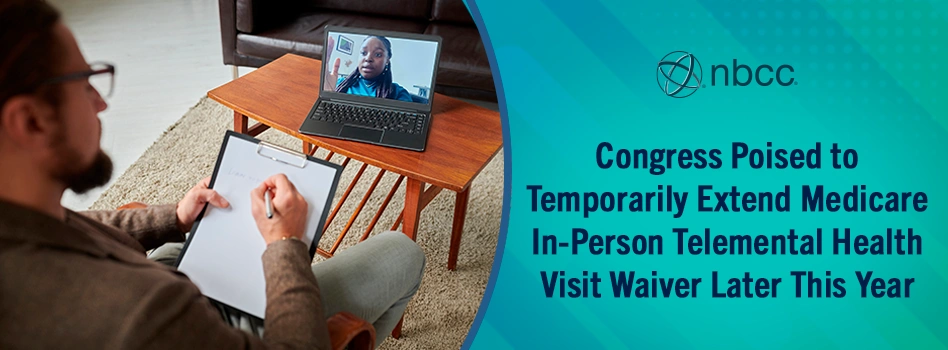
At the onset of the COVID-19 pandemic, the White House waived restrictions in place surrounding Medicare coverage for telehealth services. This temporarily removed all geographic restrictions on these services and expanded originating sites to include the home, allowed for community health centers (CHCs) and rural health clinics (RHCs) to bill Medicare for telehealth services, opened the door for more health professionals to offer telehealth services, and permitted telemental health visits to occur without a 6-month in-person requirement.
The Department of Health and Human Services (HHS) implemented the waivers as a result of the emergency powers granted to the president when a Public Health Emergency (PHE) is declared. Because the waivers were enacted as an emergency measure, Congress is required to act legislatively to extend the measures past the PHE’s expiration, which occurred May 11, 2023.
The expansion of telehealth coverage for Medicare beneficiaries became widely popular and was considered a success—particularly for telemental health services. During the second quarter of 2020, the height of the pandemic, 66% of mental health visits were conducted through telehealth. Through the pandemic and in the initial years afterward, mental health visits consistently made up the highest share of telehealth utilization compared to other specialties. By the end of 2023, 37% of mental health visits were still being conducted through telehealth.
As a result of telehealth’s success in improving access to mental health care, a bipartisan group of policymakers embraced it as a potential way to improve access to services. In 2021 and 2022, Congress passed legislation requiring Medicare to permanently extend the COVID-19 era flexibilities for telemental health services, except for waiving the 6-month in-person visit requirement. In 2023, Congress temporarily extended the waiver for the in-person visit requirement, in addition to the COVID-19–era telehealth policies for nonbehavioral health providers through the end of this year.
Luckily, Republicans and Democrats support another extension of Medicare’s pandemic-era policies, including the in-person requirement waiver. The House of Representatives coalesced around a 2-year extension. On May 8, the House Ways and Means Committee advanced H.R. 8261, The Preserving Telehealth, Hospital, and Ambulance Access Act, to temporarily extend pandemic-era telehealth policies through Dec. 31, 2026. One week later, the House Energy and Commerce Health Subcommittee advanced H.R. 7623, the Telehealth Modernization Act, which advances the waivers through 2026, as well. H.R. 7623 includes payment parity for RHCs and CHCs for telehealth services, which differs from H.R. 8261. The House will have to reconcile those differences. Both bills would extend the 6-month in-person waiver through 2026.
In the Senate, Democrats on the Senate Finance Committee have signaled a preference for a permanent extension. Though preferable for Medicare providers, a permanent extension is unlikely to be embraced this year due to concerns surrounding overutilization, fraud, and the impact of payment parity in telehealth on the quality of in-person care. These waivers will likely be extended, in some form, at the end of year in a large legislative package.
Since counselors are now eligible to participate in Medicare, the added flexibility for Medicare beneficiaries to utilize telemental health services is very important for the profession. Counselors can reach more patients, including those in rural and underserved areas, improving access to mental health services. As a result, NBCC is supportive of the Telehealth Modernization Act. This bill ensures that burdensome in-person waiver requirements are extended, and that counselors receive equal reimbursement for telehealth as for in-person visits, including those employed by RHCs and FQHCs. NBCC will continue to monitor all of the proposed bills as the progress and keep you posted on the outcomes.